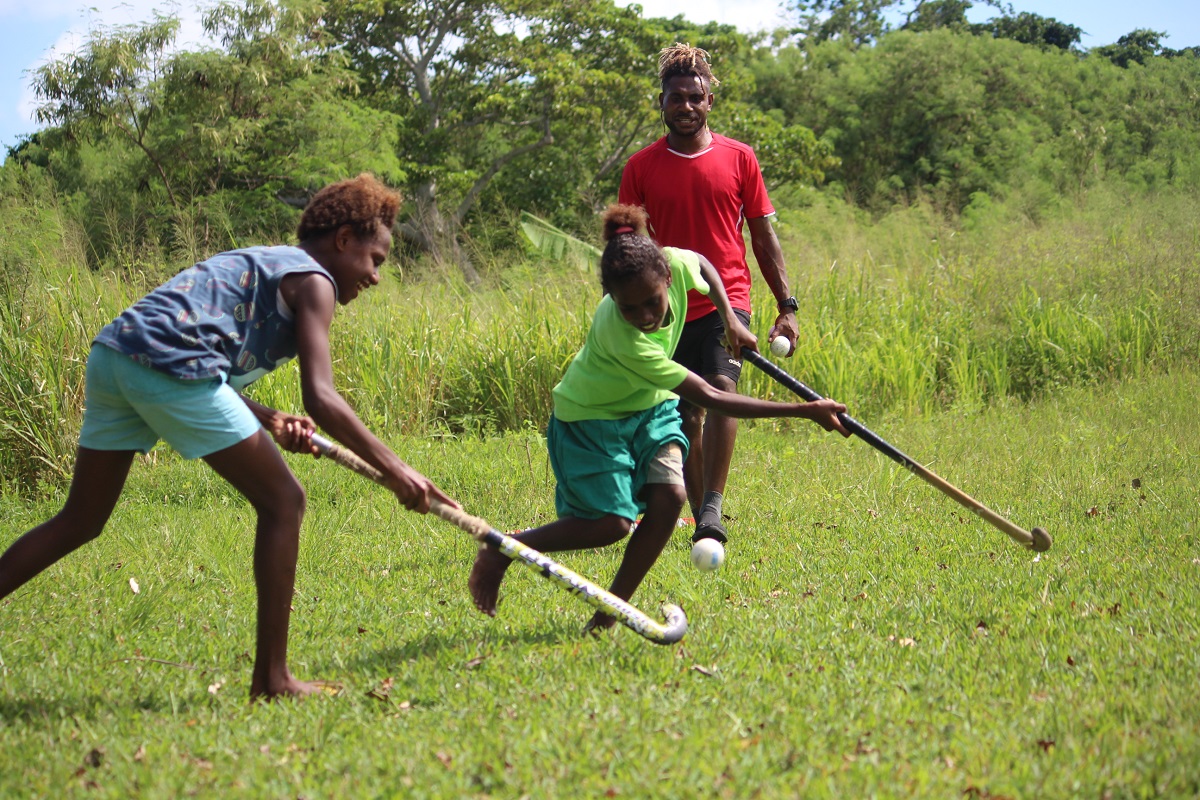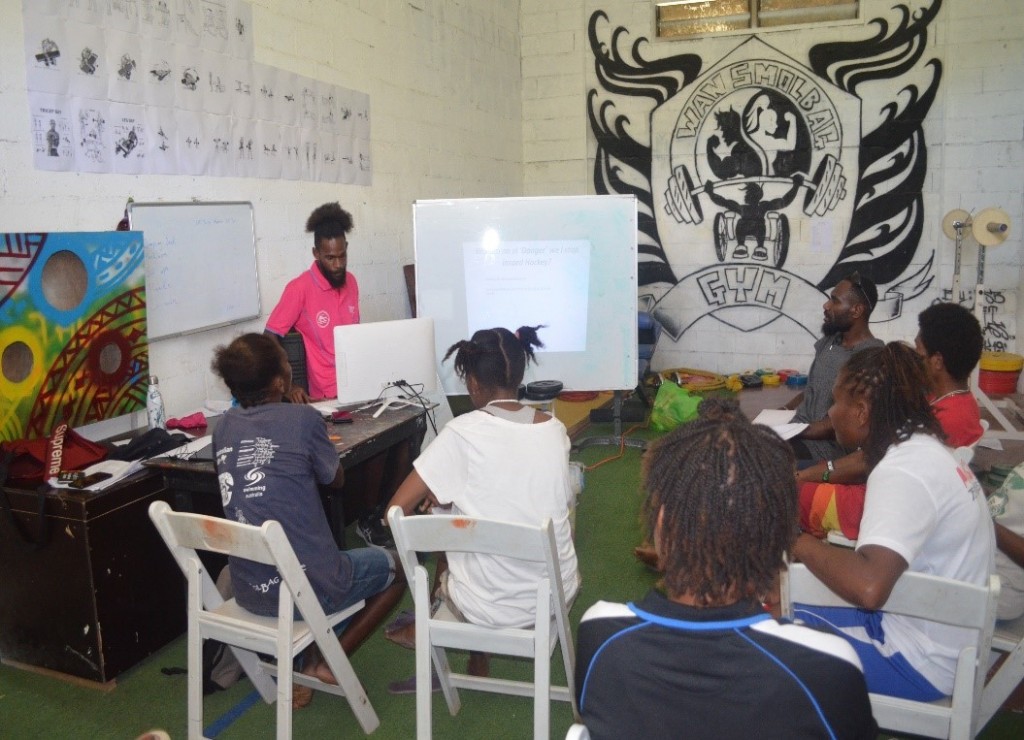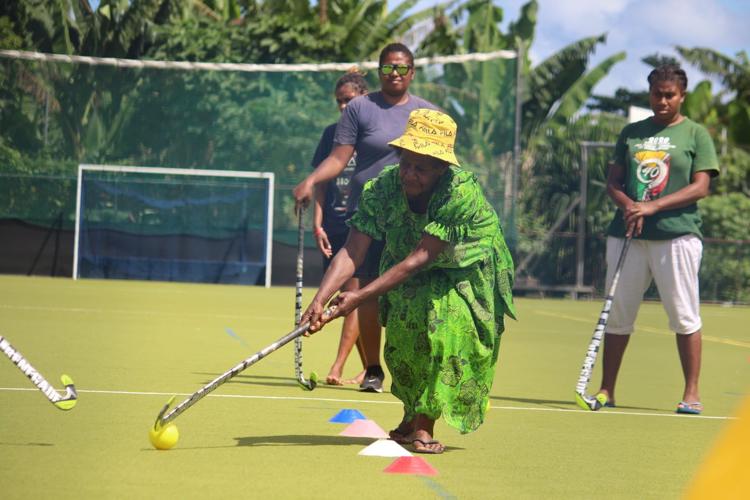
How can taking part in sport improve health outcomes and help address gender imbalance and women’s participation in developing countries in the Pacific?
Flinders Caring Futures Institute researchers Dr Kathryn Jackson and Dr Louisa Matwiejczyk are contributing to a Department of Foreign Affairs and Trade-funded sport for development initiative called Hook in 4 Health. The program aims to use hockey, a popular sport in the region, as a means of empowering women, girls and people with disability and encouraging communities to make healthy lifestyle choices.
“Sport can be used as a conduit to increase participation and build connections and relationships,” Dr Matwiejczyk explains. “In this instance we’re using hockey to engage the community, strengthen nutrition and healthy eating and improve health outcomes.”
Conducted across six sites in Vanuatu and Papua New Guinea, the program also aims to increase participation of women in the community and address concerning rates of domestic violence and noncommunicable disease.
Dr Jackson, a highly experienced sports dietitian, is developing a culturally appropriate nutrition program to be delivered in the two countries.
“Through an online platform, I’m training the trainers to deliver the nutrition program to primary and secondary school students alongside the various hockey activities,” she says. “The students get together; they train and play games while receiving practical information about staying healthy and active.”

A separate program aimed at improving family nutrition through participation in a sport will be offered to the students’ mothers, known as the ‘Hockey Mamas’, as well.
“The challenge is being culturally sensitive to their nutrition practices,” Dr Jackson says. “We can’t go in there and tell them what to eat. We have to work with the trainers, the local people, who then interact with the kids and parents.”
Among other partners in the project, Family Planning NSW is also developing content around sexual and reproductive health to improve health literacy and elevate the role of women in the region.

Dr Matwiejczyk and Associate Professors Deb Agnew and Shane Pill from Flinders’ College of Education, Psychology and Social Work are tasked with evaluating the program to measure its efficacy and make recommendations.
“We want to see whether it makes a difference to the communities, how well it is received and whether it needs to be modified,” Dr Matwiejczyk explains, adding the program may be scaled up and used in other Pacific nations in the future.
“It’s a privilege to be involved with the program and to work with two very different cultures. It’s interesting to see different ways of working and how the different communities engage with health. The sport for development model conceptually seems really effective.”
It’s hoped the program will eventually lead to improved health outcomes in both countries.
“It is about changing behaviours around diet, achieving gender equality, addressing sensitive issues around sexual health and respect and having females participate a lot more,” Dr Matwiejczyk says.
The lead organisation for the project is Oceania Hockey Federation. Other partners include Vanuatu Hockey Federation; Wan Smolbag in Vanuatu; Cairns Hockey Association; Family Planning Australia (and local service partners) and Hockey Australia.

